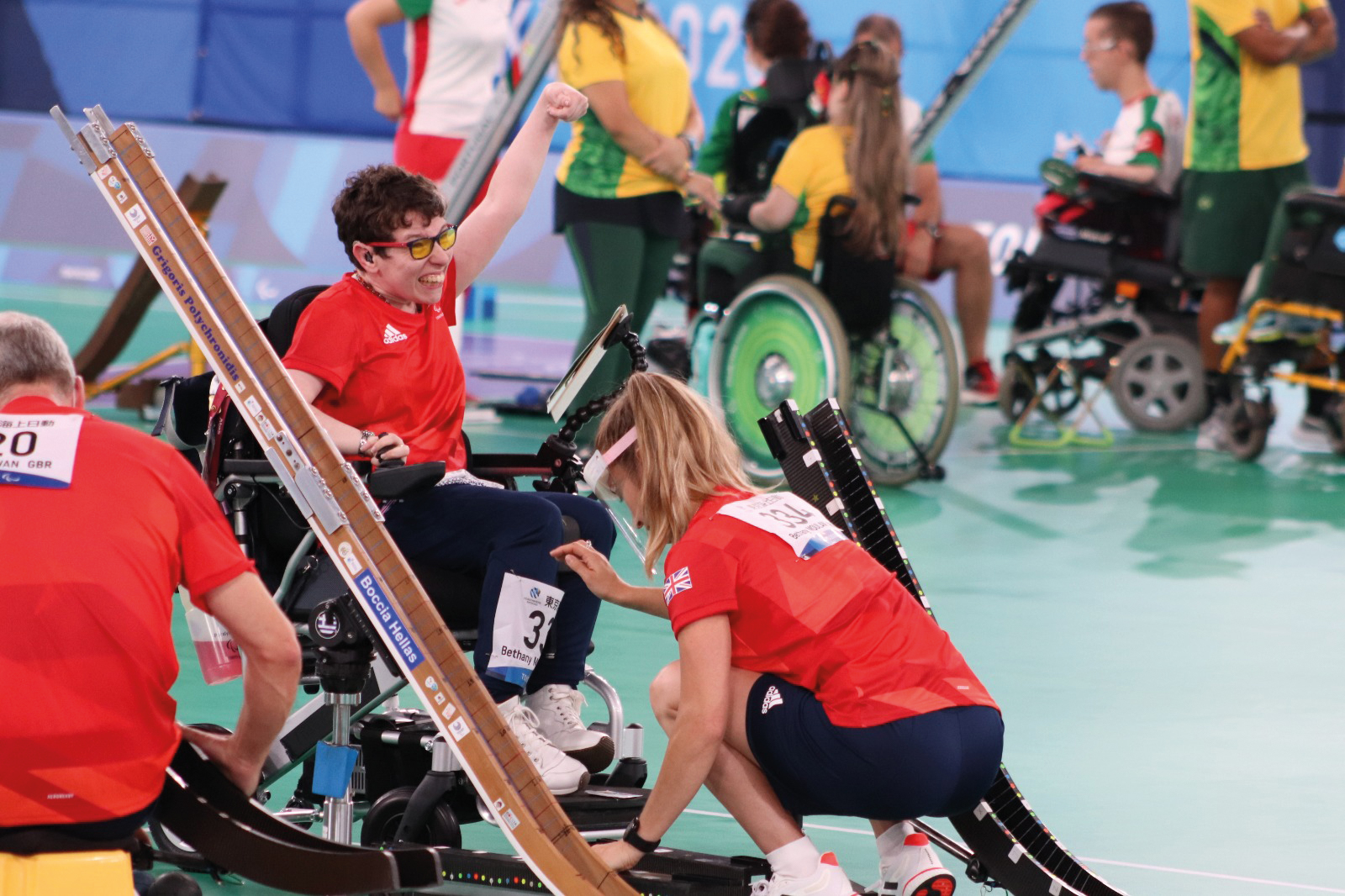University of York student Beth Moulam competed earlier this month at the Tokyo 2020 Paralympic Games.
Moulam’s sport, boccia, is one of three sports in the Paralympics which have no Olympic equivalent. It is for athletes with conditions like cerebral palsy and muscular dystrophy that affects all four limbs.
The sport is played on an indoor court with players positioned at one end. From a seated position, players propel balls to land as close as possible to a white marker ball, known as the ‘jack’.
After returning to York, Moulam spoke to York Vision about her experience, how she discovered boccia, and life as an athlete at the University.
“In 2000 I watched the Sydney Paralympics and saw a sprinter called Caroline Innes compete to win gold. When she was interviewed afterwards, I realised she was just like me, with cerebral palsy and a speech impairment. I knew then if Caroline could do sport, so could I, so at that stage I just needed to find a sport for me.
“When I was ten, I was invited to play boccia in the Surrey Youth Games for my local borough. My friend and I just got a half-hour training session and then we went to compete. Until that point, I hadn’t realised I was competitive, but I loved it and knew boccia was the sport for me.”
Moulam told Vision about how she was able to balance training for the Paralympics with studying at York.
She said: “Due to my disability, I was awarded 100% extra time for my studies, which meant I studied the course part-time but did full-time hours. In January 2020 I applied for a year out so I could focus on selection for Tokyo 2020, and I was then invited in February onto the World Class Programme, which was the start of the build towards the Paralympics.
“When COVID-19 hit and the Games were postponed for a year I returned to the Uni to complete my dissertation during the Summer Term, then in the Autumn to complete the modules I’d missed earlier in 2020. The staff throughout my studies were really helpful, especially when I’d had to miss a lecture or seminar for a training camp or competition.”
Tokyo 2020 took place in very different conditions to a normal Paralympics, with athletes living in bubbles, and spectators not being able to attend, which Moulam told Vision was “probably not the normal Paralympic experience”.
She said: “But what was great was the opportunity and excitement of everyone being able to take part in the Games after months of living under COVID-19 restrictions. Even though family and friends could not be there, their support and enthusiasm before, during, and after the Games demonstrated the power of sport to bring the world together.”
Away from sport, Moulam has been working with people who use Augmentative and Alternative Communication (AAC).
“Like Stephen Hawking and Lee Ridley (Lost Voice Guy), I have a speech impairment and use an electronic communication device to speak. My goal is to continue to raise awareness and support young people develop their potential as communicators and in life generally.”
Vision asked Moulam if she had any advice for people with disabilities starting university in York, and she said: “Talk to the staff as they are all there to support you.
“The Disability Support team really helped me, and my supervisor has been great throughout the course. Then make sure you use what resources and strategies that are available to you in your disability support plan. Don’t be shy of asking for a review of your plan after the first few weeks if you find there is something missing or not working the way you think it should.
“Oh, and make sure through student services you are getting all the benefits and support you are entitled to. The Alcuin College team were great even when I didn’t live on campus.”
If you want to get involved in boccia, Moulam and her parents run Jorvik Boccia for people who are eligible for the Paralympic pathway.
“As a sport we are growing fast so we are always looking for coaches, officials, and classifiers. There are opportunities to be trained and get experience to work right up to elite level and represent GB as an official at all levels.”
